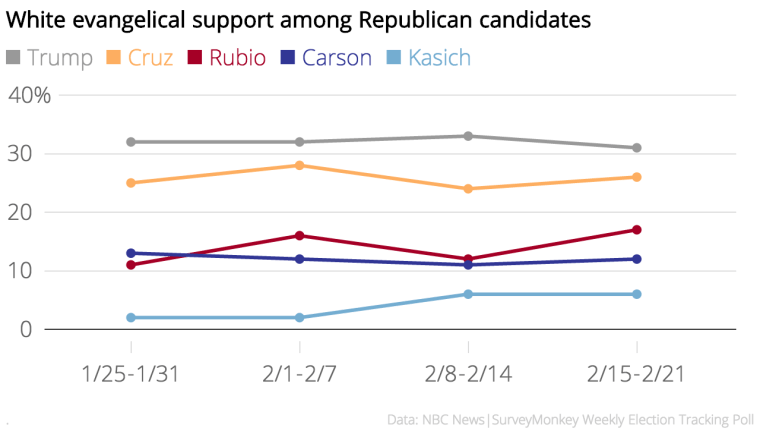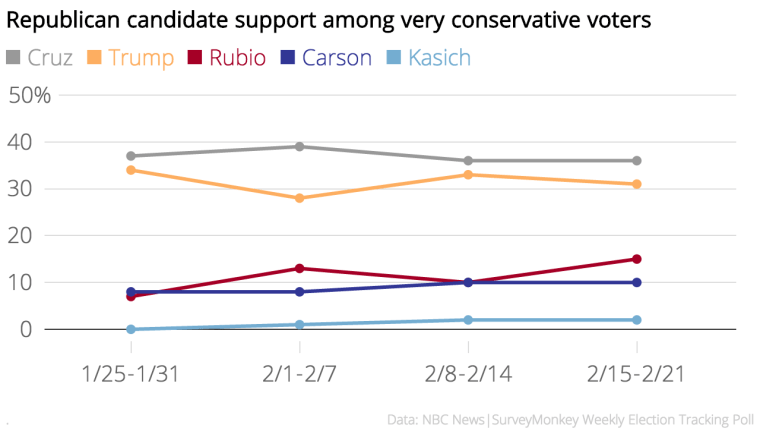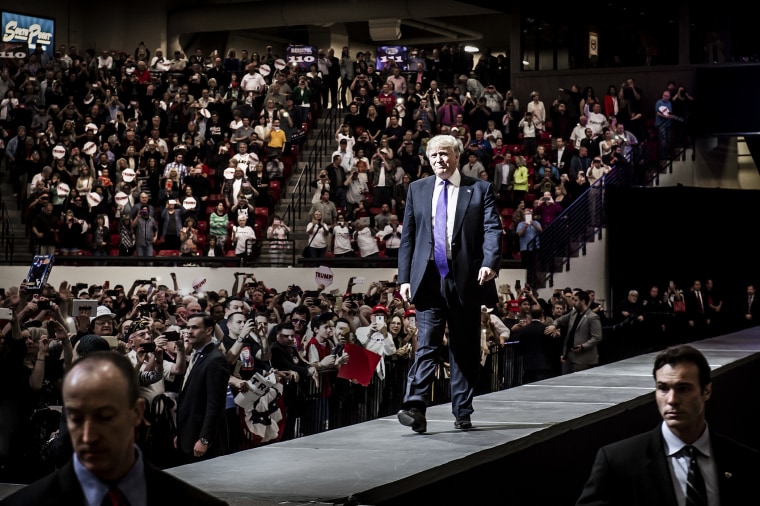Who has the momentum now that the Republican field has winnowed?
Our new national numbers from the past week show that the race remained largely unchanged, although Marco Rubio’s overall number creeped up 2 points from last week to 16 percent. Donald Trump continues to hold a commanding double-digit lead over all other Republican candidates with 36 percent; Ted Cruz remains in second place with 19 percent—just 3 points ahead of Rubio.
These results are according to the latest from the NBC News|SurveyMonkey Weekly Election Tracking poll conducted online from Feb 15-21 among a national sample of 11,662 adults, including 10,386 who say they are registered to vote.
Photo Essay: Inside the three-man Republican race for Nevada
The candidates now turn their attention to the Nevada caucus on Tuesday, where a large share of the caucus electorate identified as white evangelical in 2012 (24 percent). According to data from our latest week of polling, Rubio gained 5 points among this group nationally since last week. Trump and Cruz continue to take first and second in this group, however, while Carson and Rubio have been battling for third place in the past four weeks.
In South Carolina on Saturday, Trump was the most popular candidate among white evangelicals—a disappointment for Cruz, who has been courting this group throughout his campaign.

Another key group for the Republican candidates looking toward Nevada is those who identify as “very conservative”—this group made up nearly half of the caucus electorate in 2012. Support for Rubio among Republican voters who identify as “very conservative” rose from 10 percent last week to 15 percent this week. Cruz still leads this group nationally with 36 percent support. In South Carolina, Cruz beat Trump among very conservative voters 35 percent to 29 percent.

